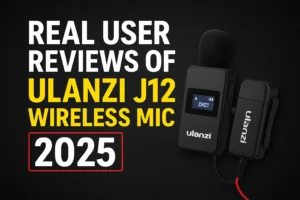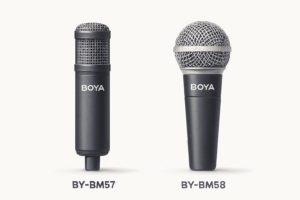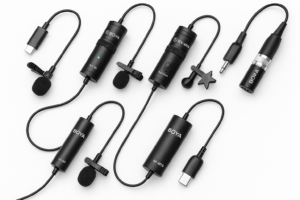- You have no items in your shopping cart
- Subtotal: ₹0.00

|
Getting your Trinity Audio player ready...
|
So You Wanna Sing Like Arijit Singh or Neha Kakkar? Or Maybe Just Record Reels from Your Bedroom Studio?
Guess what it’s not just about your voice. Sometimes, it’s your microphone.
Yup, that tiny mic can seriously level up your singing game.
But finding a good microphone for singing in India? It’s honestly confusing. So many types, so many names dynamic, condenser, USB, XLR. feels more like a science project than music gear.
But don’t stress. I’m here to break it all down for you in super simple English. Think of it like explaining to your younger sibling: fun, helpful, and easy to understand.
Let’s go
What Is a Microphone for Singing? (And How Does It Work?)
Let’s keep it simple:
A microphone captures your voice and turns it into digital sound that can be recorded or amplified.
But not every mic is made for singing. Some are built for podcasting, some for gaming, and some are specially made to capture music vocals clearly, including bass, treble, and those sweet high notes.
How it works:
- You sing
- The mic catches the sound waves
- It converts them into an electrical signal
- That signal is sent to a device (laptop, speaker, audio interface)
And boom your voice is now digital. It can be recorded, edited, or played loud.
Types of Microphones for Singing
(Think of it like soft drinks – not all are the same)
1. Dynamic Microphones
- Durable and doesn’t catch much background noise
- Great for live performances
- Perfect for stage singing, band practices
2. Condenser Microphones
- Super sensitive — catches even the softest sounds
- Ideal for studio recording
- Best for acoustic covers and soft vocals
3. USB Microphones
- Plug-and-play — no extra setup
- Great for beginners and home singers
- Directly connects to laptops
4. XLR Microphones
- Requires an audio interface or mixer
- Offers professional sound quality
- Used by serious artists and professionals
Top 7 Best Microphones for Singing in India (From Budget to Premium)
We researched YouTubers, singers, and audio tech experts across India to bring you this list:
1. Boya BY-M1 (Budget Hero)
- Cheap, easy to use, good for phone recording
- Not suitable for studio-quality singing
- ₹800–₹1,000
- Best for beginners and college students
2. Fifine K669B (YouTuber’s Favorite)
- USB mic with solid clarity and build
- Picks up background noise
- ₹2,500–₹3,000
- Best for bedroom singers, podcasting
3. Maono AU-A04 (All-Rounder Hero)
- Condenser mic, great sound, USB plug
- Needs a pop filter
- ₹3,500–₹4,500
- Best for beginner home studios
4. Audio-Technica AT2020 (Semi-Pro Choice)
- Excellent studio-level vocals
- Requires an audio interface (XLR)
- ₹9,000–₹11,000
- Best for advanced singers and creators
5. Shure SM58 (Live Stage King)
- Rugged, reliable, great for live shows
- Not ideal for soft indoor vocals
- ₹8,000–₹10,000
- Best for stage performers and bands
6. Blue Yeti (Premium USB Mic)
- Fantastic sound, multiple recording modes
- Bulky and needs a quiet environment
- ₹10,000–₹12,000
- Best for serious creators and vloggers
7. Rode NT1-A (Pro Studio Legend)
- Ultra-clear sound, studio-grade
- Expensive and needs an interface
- ₹18,000–₹22,000
- Best for professionals and studio owners

Quick Comparison Table
| Mic Name | Type | Use Type | Price (₹) | Best For |
|---|---|---|---|---|
| Boya BY-M1 | Lavalier | Basic | ₹900 | Beginners, mobile use |
| Fifine K669B | USB Condenser | Home Use | ₹2,800 | Bedroom singers |
| Maono AU-A04 | USB Condenser | All-Round | ₹4,000 | Home studio, YouTubers |
| Audio-Technica AT2020 | XLR Condenser | Studio | ₹10,000 | Semi-pro vocalists |
| Shure SM58 | Dynamic | Live Stage | ₹9,000 | Bands, performers |
| Blue Yeti | USB Condenser | Premium USB | ₹11,000 | Creators, vloggers |
| Rode NT1-A | XLR Condenser | Pro Studio | ₹20,000 | Professional singers |
Common Mistakes Indians Make When Buying a Mic
(And Regret Later…)
Mistake 1: Buying the cheapest mic blindly
Just because it’s ₹500 on Amazon doesn’t mean it’s good for singing. Check the type and purpose.
Mistake 2: Ignoring your room environment
Bought a sensitive condenser mic and it’s picking up fan noise, traffic, and the neighbor’s dog? Soundproofing matters.
Mistake 3: Not checking device compatibility
Bought a USB mic but it doesn’t work with your phone? Always check if the mic supports your device (laptop, mobile, etc.).
Mistake 4: Expecting studio magic from a budget mic
Even a ₹1000 mic won’t make you sound like Arijit Singh. A good mic helps, but practice matters more.
Quick Tips for Choosing the Right Singing Mic
- Use condenser mics for soft vocals or studio-style singing
- Go for USB mics if you’re a beginner — easy setup
- Always buy from trusted sellers (Amazon, Flipkart, Bajaao)
- Don’t forget pop filters and mic stands — they improve sound quality a lot
Final Thoughts: You’re All Set!
So bro/sis, this was your full desi guide to microphones for singing.
Next time someone says, “I want a good mic for singing”, you can say —
“Wait, I got you!”
Just Remember:
- A good mic helps, but your voice is still #1
- Be smart with your budget
- Practice daily (even if it’s in the shower)
Got more questions? Drop a comment or ping anytime.
Until then — keep singing, keep creating, and keep shining
Bye for now. TTYL.
Which microphone is best for singing at home?
Maono AU-A04 or Fifine K669B are great for home setups and beginners.
What’s the difference between condenser and dynamic mics?
Condenser = studio, sensitive
Dynamic = stage, durable
Can I use a mic without an audio interface?
Yes, if it’s a USB mic. XLR mics need an interface.
Is Boya BY-M1 good for singing?
It’s okay for casual use or college-level recordings. Not ideal for professional vocals.
Which mics do Indian singers use?
Pros mostly use Rode, Shure, and Audio-Technica in studios.
How to connect a mic to a phone?
For USB mics, use an OTG cable. For lavalier mics like Boya, plug directly into the headphone jack (if your phone has one).



